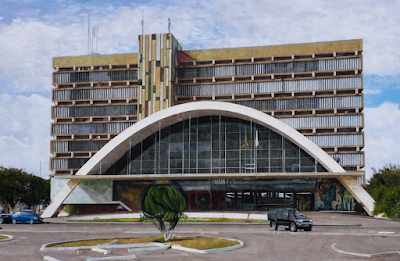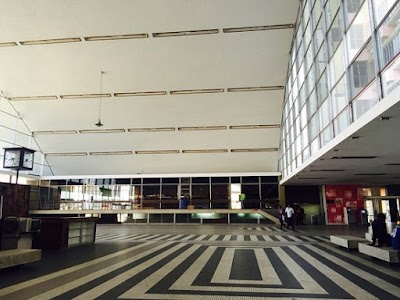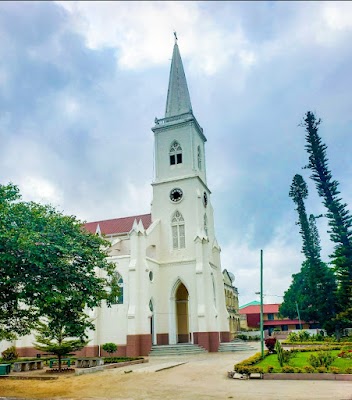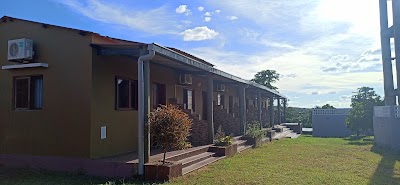Beira Railway Station (Estação Ferroviária da Beira)
Overview
Beira Railway Station, nestled in the vibrant heart of Sofala Province in Mozambique, serves as a captivating portal into the country’s rich history and colonial heritage. Established in the early 20th century, this iconic railway station has been instrumental in shaping both the economic and cultural landscape of Mozambique, making it a must-visit destination for inquisitive travelers.
A Historical Landmark
Inaugurated in 1897, Beira Railway Station was a crucial component of the Beira Railway, designed to connect the coastal city of Beira with the interior regions and beyond, extending all the way to Zimbabwe (then known as Rhodesia). This railway line facilitated trade and movement between the two nations, leading to the flourishing of Beira as a bustling port city and a significant hub for commerce in Southern Africa.
Architectural Splendor
The architectural design of Beira Railway Station is an exquisite example of colonial style, characterized by high ceilings, spacious waiting halls, and intricate detailing that reflects the grandeur of a bygone era. As you wander through the station, you can almost hear the echoes of steam engines and the lively bustle of passengers from decades past, making it a visually captivating sight for visitors.
A Symbol of Resilience
More than just a transportation hub, Beira Railway Station symbolizes the resilience and spirit of the city. Having withstood numerous challenges, including the devastation wrought by Cyclone Idai in 2019, the station has undergone restoration efforts that serve as a testament to the community’s determination and endurance.
Historical Significance
For those intrigued by the socio-political history of Mozambique, the station offers a compelling narrative. During the struggle for independence from Portuguese rule, Beira Railway Station was a site of pivotal events, witnessing the transportation of freedom fighters and the exchange of revolutionary ideas, embedding itself deeply in the nation’s historical fabric.
Strategic Location
Tourists will also appreciate the station’s prime location within the city. Positioned near major attractions such as the Cathedral of Beira, the Macuti Lighthouse and Shipwreck, and the bustling Beira port, the station serves as an excellent starting point for exploring the city. Visitors often marvel at the station's continued operation as an active part of the city's modern transportation network, despite its historical significance.
Cultural Exchange
An intriguing aspect of Beira Railway Station is its role in fostering cultural exchange between Mozambique and its neighboring countries. The railway not only bolstered economic ties but also facilitated a rich exchange of cultures, traditions, and cuisines, contributing to Beira’s diverse and multicultural character. Today, the station buzzes with a melting pot of languages and ethnicities, offering a unique glimpse into the harmonious coexistence of various communities.
A Culinary Delight
For those seeking a more immersive experience, Beira Railway Station boasts an array of local vendors and eateries where visitors can savor authentic Mozambican cuisine. From fresh seafood to the iconic peri-peri chicken, the culinary offerings around the station provide a delightful treat for the senses. Additionally, the surrounding vibrant markets are perfect for tourists looking to purchase local handicrafts, textiles, and souvenirs to commemorate their visit.
Conclusion
In summary, Beira Railway Station is much more than a transit point; it is a historical landmark that encapsulates the essence of Beira's storied past and dynamic present. Whether you’re a history enthusiast, an architecture aficionado, or simply a traveler eager to immerse yourself in local culture, a visit to Beira Railway Station is sure to be a rewarding experience. The station stands as a proud monument to Mozambique’s colonial history, its enduring resilience, and its ever-evolving identity, making it an unmissable stop on your journey through this beautiful African nation.






